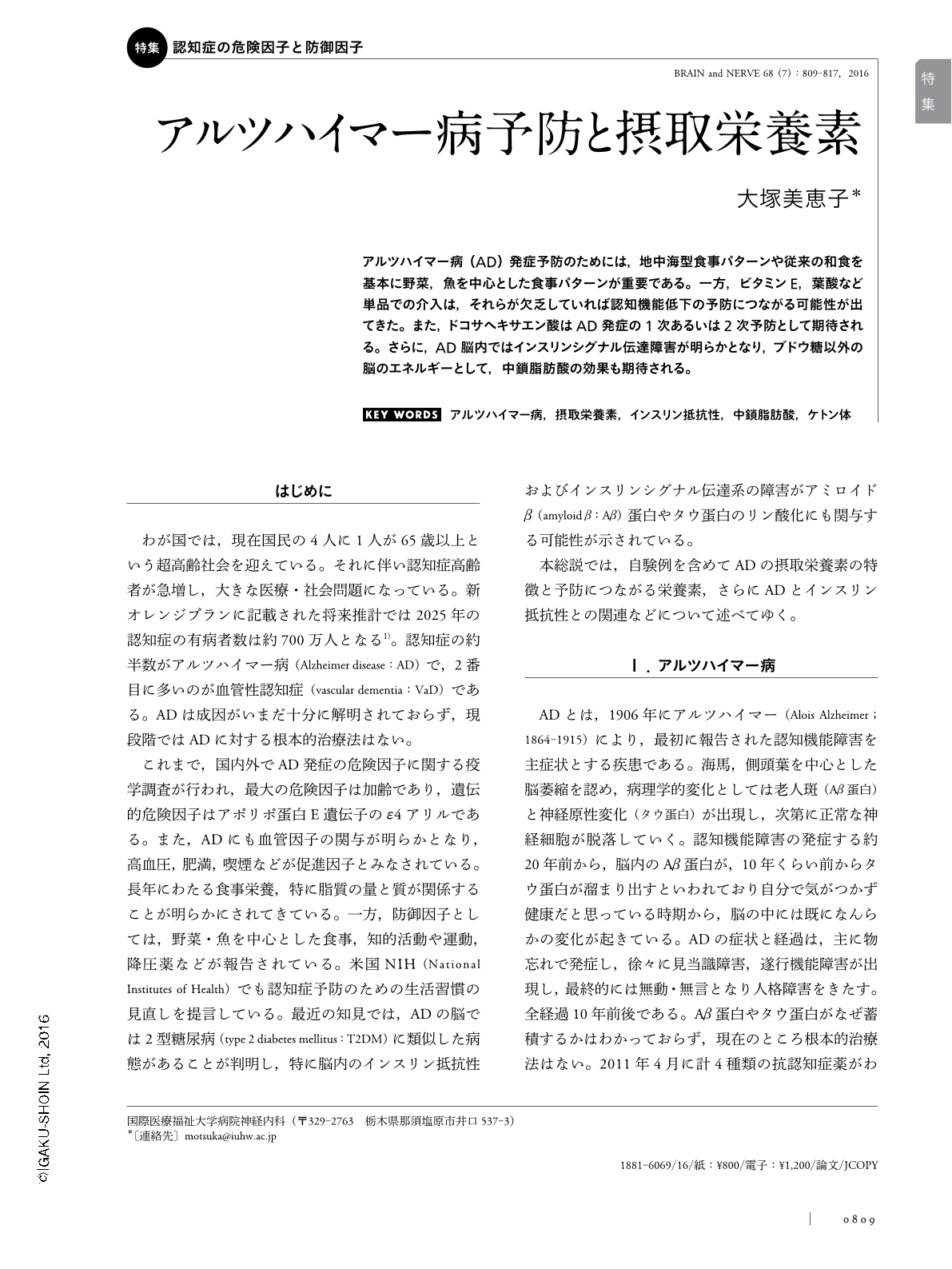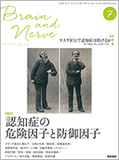Japanese
English
- 有料閲覧
- Abstract 文献概要
- 1ページ目 Look Inside
- 参考文献 Reference
アルツハイマー病(AD)発症予防のためには,地中海型食事パターンや従来の和食を基本に野菜,魚を中心とした食事パターンが重要である。一方,ビタミンE,葉酸など単品での介入は,それらが欠乏していれば認知機能低下の予防につながる可能性が出てきた。また,ドコサヘキサエン酸はAD発症の1次あるいは2次予防として期待される。さらに,AD脳内ではインスリンシグナル伝達障害が明らかとなり,ブドウ糖以外の脳のエネルギーとして,中鎖脂肪酸の効果も期待される。
Abstract
The dietary recommendations for the prevention and management of Alzheimer's disease (AD), are the Mediterranean diet and the Japanese-style diet, both of which contain well-balanced nutrients from fish and vegetables. These diets are rich in vitamin E, carotenes, antioxidant flavonoids, vitamin B12, folate, and n-3PUFA. According to recent review supplementation of folate and vitamin E may protect against elderly people's cognitive decline when the serum folate is <12 nmol/L or the vitamin E intake is <6.1 mg/day.
Another nutritional topic with regard to dementia and diet is the association of type-2 diabetes and hyperinsulinemia with AD. Expression array data of the brain tissue of AD patients in the Hisayama study strongly suggests a disturbance in insulin signaling in the AD brain. The dysfunction of insulin signaling could directly lead to disrupted glucose utilization in the AD brain. Instead of improperly utilized glucose, the medium chain triglyceride ketone bodies can be an alternative energy resource for the AD brain.
In conclusion, the dietary recommendations for the prevention and management of AD are a high consumption of fish, vegetables, and low glycemic index fruits; a moderate amount of meat and dairy products; and a lower amount of carbohydrates and refined sugar.

Copyright © 2016, Igaku-Shoin Ltd. All rights reserved.


